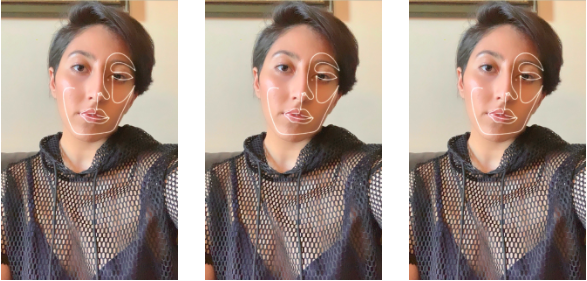
In her April set of journal-style entries, Divya Seth refects on her experience staying indoors and the dreams put on pause as the world confronts an unprecedented crisis. Speaking from the center of the pandemic in America, New York City, she contrasts her quiet time indoors with the chaos of the frontlines in her uniquely ponderous voice. Read more of her previous short essays here.
March 21, 2020
I often wonder why we center ugly things in our lives. Before a virus forced us all indoors, I was looking at apartments. I still dream of brownstones and how I will decorate the cherry wood interiors. I can spend hours imagining the ways I’ll pour myself onto the walls of this space so that it is genuinely mine. One thing I will not be doing is turning my loveseats and couches and chairs to face a television. A big, bulky, black hole in the wall that only seems to scream at me: “Coming up today, more bad news! But first, yesterday’s bad news!”
At least if my bad news is delivered to me in the written word, I can read it sentence by sentence and as soon as I hit one that tells me yet another man did something so vile I can’t even comprehend it, I can screw my eyes shut and stop reading. Remember that my plants breathe quietly on my windowsill, and that is how they resist, and it is how I, too, can resist. Then, I can keep reading.
[Read More: December: Grownup Babies and Coffee Shop Mice]
March 24, 2020
Often, I find myself longing for the breezy ease of a linen apron decorated in blue violets, well-worn. The off-white side panels of a suburban home, never totally clean. The quiet smell of banana bread and sticky oven fingers. I’m nostalgic for a childhood that isn’t mine. In such a dream, my hips might bruise under a light touch. And, if I close my eyes, my body could be weightless and float away from me.
In these fabrications, my body was approached gently; my perceptions, free to exist sunlit and feathered. If ever a jagged edge appears, I can smooth it over with the stroke of a brush, no longer a blemish on my soft daydream. If our memories are notoriously unreliable, corrupted every time we pull them into the present, then these dreams are about as real as memories. Memories that only contain wisps of reality are not sacred, and mine, with their violent strokes, even less so.
[Read More: February: Anxiety, an Astronaut, and Falguni’s Bowl cut]
April 19th, 2020
The city that was constantly churning has been brought to a standstill. Its silence is deafening, so I turn inward. Here, the monotony is maddening. I brush my teeth every morning. These days, I rinse my toothbrush and put it to my lips, and think: Didn’t I just do this? Scenes of daily living slip from the ranks of time spliced together in my mind: toothbrush, dog barking, wash your hands, evening beer, sunrise, sunset, wash your hands, new emails, light the stove, laptop screen, wash your hands.
One day, I work out a little too aggressively, and my ears start to ring. I ask the cat: Do you hear that? He says no. My ears whine with the feedback of a fallen microphone. I could do anything I want on this stage, but the auditorium is empty. There’s no one to see me. They’re all somewhere else, fighting, praying, pacing, working. I’m not where they are and I feel like I should be. But, I keep reminding myself, a trance-like existence indoors is safer than a hellish one on the frontlines.
Indoors, I cry over the death of an Indian chef whose name I didn’t even know until I saw him in an episode of “Ugly Delicious.” Indoors, I’m confronted by numbers: The city’s death toll has passed 10,000. Eighty percent of the $2 trillion stimulus package has gone to millionaires. Indoors, I await the seven o’clock neighborhood cheer for essential workers. The daily primal scream hour doubles as a vent for my feelings of casual despair. Outdoors, on my balcony, it strikes me that the skyline is clearer than ever.




